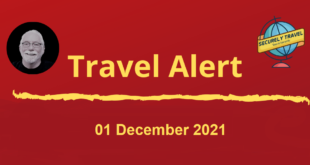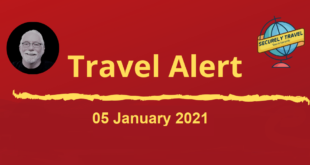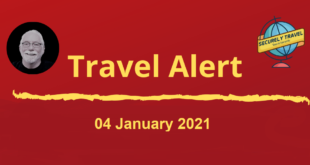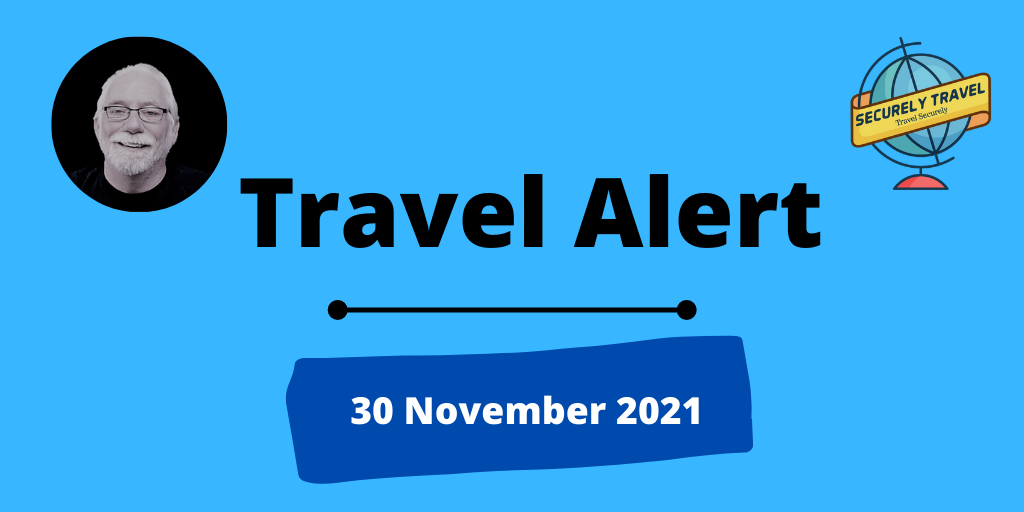
Sections:
SUMMARY: International travel and entry rules for non-citizen travelers is in a global state of flux, as the COVID-19 Omicron variant spread is assessed and understood. While travelers to the central Europe and the Black Sea region face disruption due to ongoing Russian escalation in occupied-Ukraine. U.S. citizens are urged to depart Ethiopia; while Nigeria is experiencing a Monkey Pox outbreak. In western-Canada, fuel rationing will continue through 14 December. The Ukraine is reporting a coup plot was disrupted amidst Russian military buildup.

Ukraine - Russian military buildup along the border with Ukraine, couple with reports of a Russian-backed coup plot provides sufficient backdrop to urge travelers reconsider travel to the region at this time.
Tunisia - December 10 a civil strike is planned for the coastal Sfax Governorate. With nationwide protests expected to continue through December.
Burkino Faso - A nationwide telecommunications strike is ongoing.
Sudan - Central Khartoum is experiencing protests, which were dispersed with tear gas on 30 November.
Guadeloupe - Authorities have put in place curfews due to civil unrest. Travelers will be well served to obtain up-to-date information from their hosts on the ins and outs of the curfew and navigating within the constraints.
Canada - Fuel rationing in the western province of British Columbia will continue through at least 14 December, due to the devastating storms which the province weathered in recent days.
Ethiopia - The government of Australia issued a warning to their citizens of the “ongoing possibility of terrorist attacks in Ethiopia.” The warning urges travelers to maintain a high level of vigilance. The United States government is urging U.S. citizens to depart the country.

The arrive of Omicron variant has caused a good bit of knee-jerk as countries have instituted travel restrictions in hoping to stave off the arrival of the variant, while they get their collective acts together. Israel and Japan have taken the more draconian step of closing their respective countries to all travelers.
Today, CDC is strengthening its recommendation on booster doses for individuals who are 18 years and older. Everyone ages 18 and older should get a booster shot either when they are 6 months after their initial Pfizer or Moderna series or 2 months after their initial J&J vaccine.
The recent emergence of the Omicron variant (B.1.1.529) further emphasizes the importance of vaccination, boosters, and prevention efforts needed to protect against COVID-19. Early data from South Africa suggest increased transmissibility of the Omicron variant, and scientists in the United States and around the world are urgently examining vaccine effectiveness related to this variant. I strongly encourage the 47 million adults who are not yet vaccinated to get vaccinated as soon as possible and to vaccinate the children and teens in their families as well because strong immunity will likely prevent serious illness. I also want to encourage people to get a COVID-19 test if they are sick. Increased testing will help us identify Omicron quickly.
CDC Director, Dr. Rochelle Walensky - 29 November
The latest nine updates on COVID travel from the Center for Disease Control and Prevention:
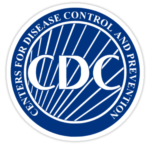


















































































United States: Widespread temperature records are set to be broken across parts of the central and western U.S. this week as anomalous warmth settles over those regions. This graphic depicts potential records for this Wednesday (43 forecast records in total) and Thursday (47 records in total).


Panama: Adverse weather is predicted through at least 07 December - travelers may expect heavier than normal rainfall throughout Panama.
Brazil - Adverse weather is predicted throughout the country through at least 04 December.
Canada - British Columbia continues to receive abnormal rainfall (twice the norm for the month of November) causing widespread provincial flooding and disrupting intra-province travel.


Nigeria: Monkeypox outbreak has been detected in multiple provinces. Travelers unfamiliar with the disease will be well served by learning more via the CDC website. The CDC urges non-essential travel be deferred.
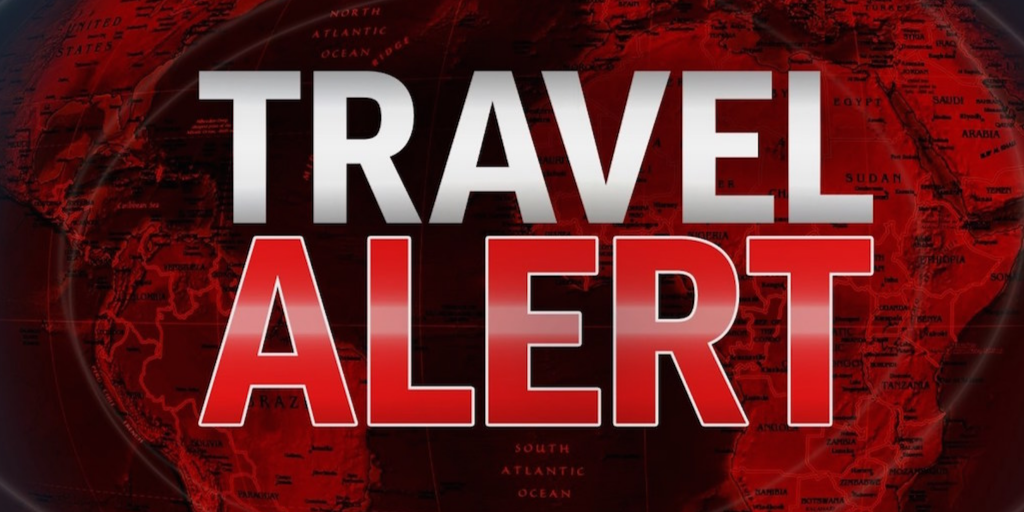

International travelers need to be proactive, before and during the travel over the course of the next six weeks as countries are adjusting requirements for permitted entry on the fly. Travelers may find themselves arriving at their destination and then being placed in a mandatory quarantine (at their own expense) for a mandated period of time (normally 10-14 calendar days). According to the TSA, over the last ten days U.S. airports have seen the heaviest influx of travelers for 2021.


The 24 most recent travel alerts from the governments of the United States, Canada, United Kingdom. This presentation of alerts is dynamic and is updated every 30 minutes.
For a more comprehensive list of government travel alerts, visit the Travel Alert page (link above)
 Travel Securely Securely Travel
Travel Securely Securely Travel
